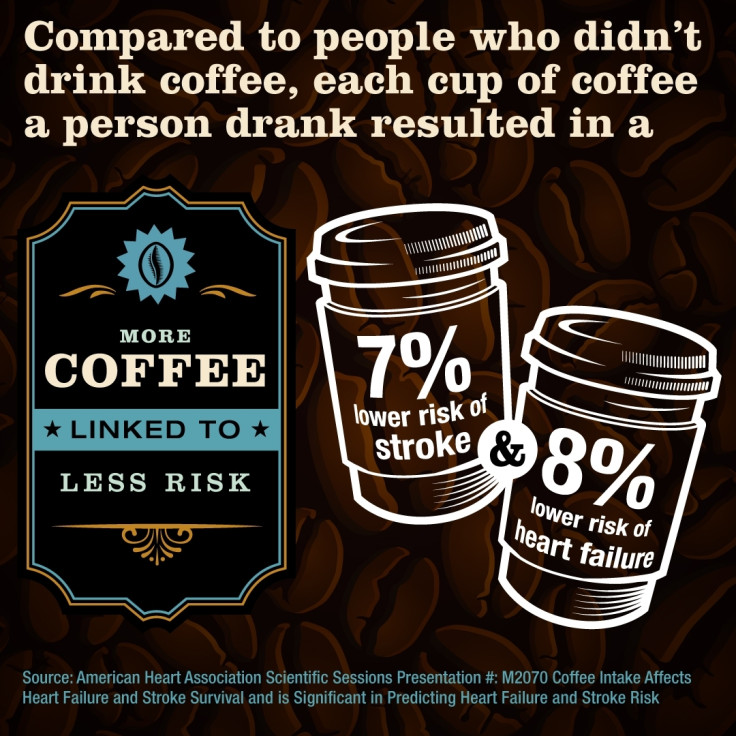Coffee and heart disease - what are the odds of dying?
New research suggests that cups of coffee could be reducing your stroke risk by 8%.

That first cup in the morning might send your heart racing but new research suggests that drinking coffee could be decreasing your risk of developing heart failure or suffering a stroke. Preliminary research presented at the American Heart Foundation (AHF) suggested that each further cup of coffee consumed each week could be helping the possible health boost.
AHF said that the researchers had used machine learning to analyse data from the Framington study, which is renowned long-running heart research with information about the foods people consumed and the health of their hearts.
The research suggested that each cup of coffee consumed over a week decreased the risk of heart failure by seven percent and the risk of stroke by eight percent compared to those who did not drink coffee.
"It is important to note that this type of study design demonstrates an observed association," the AHF added, "but does not prove cause and effect."
The organisation described 'machine learning' as finding association in data in a similar way to an online shopping site suggesting products you might like by analysing your past transactions.
The results were also checked against the findings of two other studies which similarly noted an association between coffee consumption and the decreased risk of heart failure and stroke. The machine learning also suggested an association between red meat consumption and a decrease in risk - but the AHF noted the association was "less clear".

"Our findings suggest that machine learning could help us identify additional factors to improve existing risk assessment models.
"The risk assessment tools we currently use for predicting whether someone might develop heart disease, particularly heart failure or stroke, are very good but they are not 100 percent accurate," said Laura Stevens, first author of the study.
"By including coffee in the model, the prediction accuracy increased by four per cent. Machine learning may a useful addition to the way we look at data and help us find new ways to lower the risk of heart failure and strokes," said David Kao, senior author of the study and an assistant professor at the University of Colorado school of medicine.




















